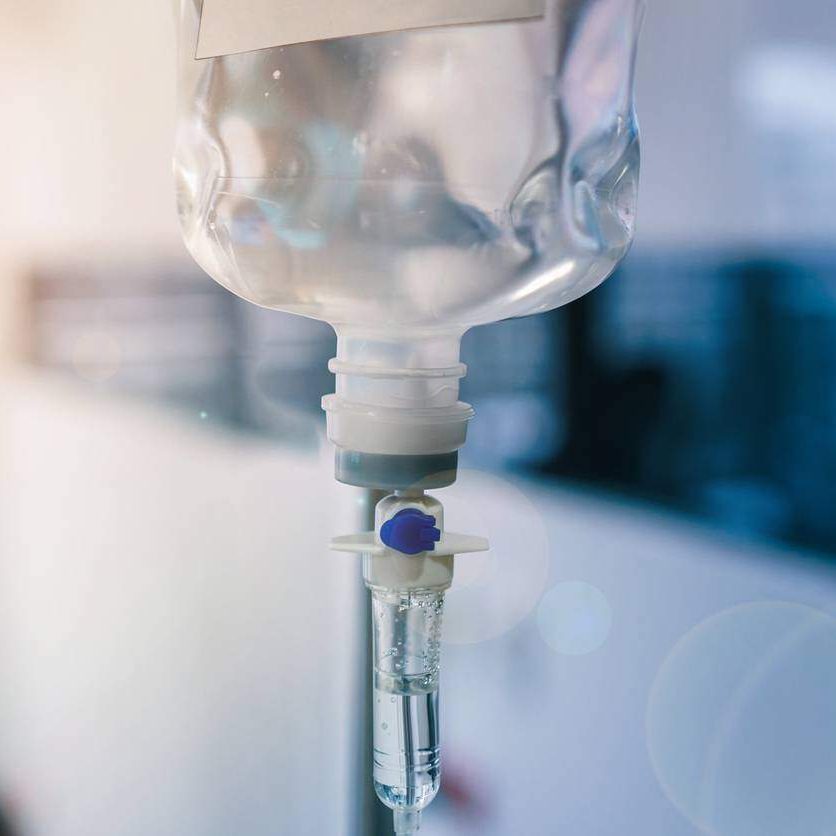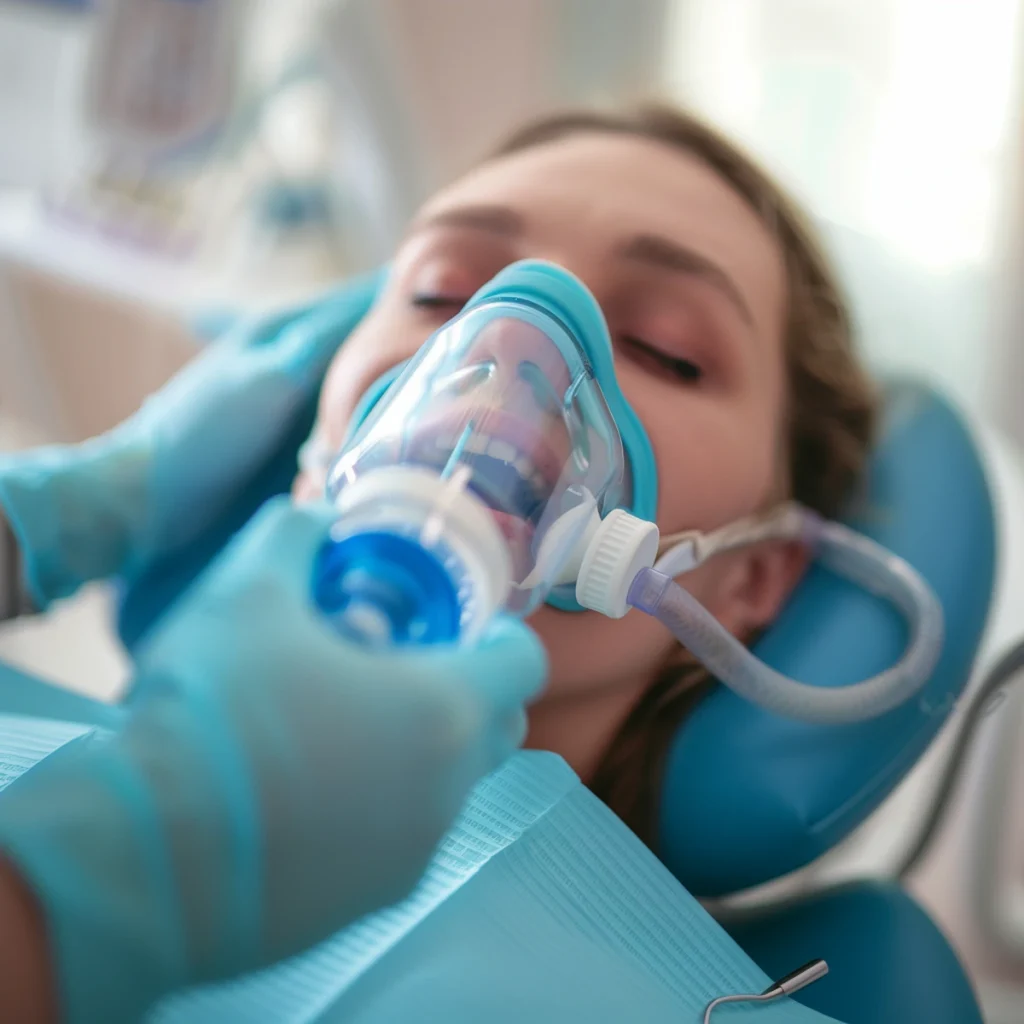Sedation dentistry is an excellent option for patients with anxiety, phobias, or medical conditions. Contact us today.
Sedation dentistry has revolutionized dental care, offering a stress-free and painless experience for patients who struggle with dental anxiety, special needs, or complex procedures. However, many people wonder: Does sedation dentistry have side effects? Understanding the potential after-effects of sedation and how to manage them can help you feel more confident about your upcoming dental visit.
If you have concerns about sedation or need a comfortable and pain-free dental visit, contact The Dental Anesthesia Center today to discuss the best sedation option.

What Is Sedation Dentistry?
Sedation dentistry involves using medications to help patients relax during dental procedures. The level of sedation depends on the type used and the patient’s needs. There are four main types:
- Nitrous Oxide (Laughing Gas) – A mild sedative inhaled through a mask that helps patients feel relaxed but awake.
- Oral Sedation – A pill taken before the procedure, typically a benzodiazepine like Valium or Halcion, that induces a drowsy, relaxed state.
- IV Sedation – Medication administered through an intravenous line, offering deeper sedation with adjustable levels.
- General Anesthesia – The deepest level of sedation, rendering the patient completely unconscious; used for major surgeries or severe dental phobia.
Common Side Effects of Sedation Dentistry
While sedation dentistry is considered safe and effective, some patients may experience temporary side effects. The severity of side effects depends on the type of sedation used, the patient’s medical history, and individual sensitivity to the medications.
Drowsiness and Grogginess
Drowsiness is the most common after-effect of sedation, particularly with oral sedation, IV sedation, and general anesthesia. Depending on the sedative, this effect can last a few hours to a full day. (American Society of Anesthesiologists (ASA), 2023)
- Why It Happens: Sedatives depress the central nervous system, slowing brain activity.
- How to Manage: Rest for the remainder of the day and avoid operating heavy machinery or driving.
Nausea and Vomiting
Some patients experience mild nausea after sedation, particularly with general anesthesia or IV sedation. This is more common in patients prone to motion sickness or with an empty stomach before the procedure. (National Institute of Health (NIH), 2023)
- Why It Happens: Some sedative medications can affect the stomach and inner ear balance.
- How to Manage: Drink small sips of water and eat light, bland foods after your procedure.
Dry Mouth
Sedation medications, particularly oral benzodiazepines, and IV sedatives can cause dry mouth by reducing saliva production. (American Dental Association (ADA), 2023)
- Why It Happens: Sedatives affect the salivary glands and nervous system.
- How to Manage: Drink plenty of water, chew sugar-free gum, and use a saliva substitute if needed.
Headache
Headaches can occur, especially after nitrous oxide sedation, when oxygen levels fluctuate. (Mayo Clinic, 2023)
- Why It Happens: If nitrous oxide is not flushed out properly with oxygen, it can cause mild headaches.
- How to Manage: Ensure your dentist administers oxygen for a few minutes post-procedure and stays hydrated.
Temporary Amnesia (Memory Loss)
Patients receiving oral sedation, IV sedation, or general anesthesia may have little to no memory of the procedure. (National Library of Medicine, 2023)
- Why It Happens: Sedatives like benzodiazepines can cause short-term memory loss as they inhibit brain activity.
- How to Manage: Memory function typically returns to normal within a few hours.
Low Blood Pressure and Dizziness
Some sedation methods, particularly IV sedation and general anesthesia, can temporarily lower blood pressure, causing dizziness or lightheadedness. (American Heart Association (AHA), 2023)
- Why It Happens: Sedation slows the heart rate and relaxes blood vessels.
- How to Manage: Get up slowly from a lying position and drink fluids.
How Long Do Sedation Side Effects Last?
- Nitrous Oxide: Wears off within 5–10 minutes after stopping the gas.
- Oral Sedation: Effects can last 4–6 hours, with some residual drowsiness for up to 24 hours.
- IV Sedation: Effects wear off in 6–12 hours, but full recovery can take 24 hours.
- General Anesthesia: It can take 24–48 hours for full recovery.

When to Call Your Dentist
While most sedation side effects are mild and temporary, contact your dentist if you experience:
- Severe nausea or vomiting lasting more than 24 hours.
- Excessive bleeding, swelling, or pain.
- Confusion or difficulty breathing.
Sedation Dentistry is Safe and Effective
Sedation dentistry is an excellent option for patients with anxiety, phobias, or medical conditions that make traditional dental care challenging. While side effects like drowsiness, dry mouth, or dizziness can occur, they are temporary and manageable. Understanding what to expect can help you prepare for a smooth, stress-free dental experience.
If you have concerns about sedation or need a comfortable and pain-free dental visit, contact The Dental Anesthesia Center today to discuss the best sedation option.
Call Us Today
The first two board-certified Dentist Anesthesiologists in the state of Missouri.

